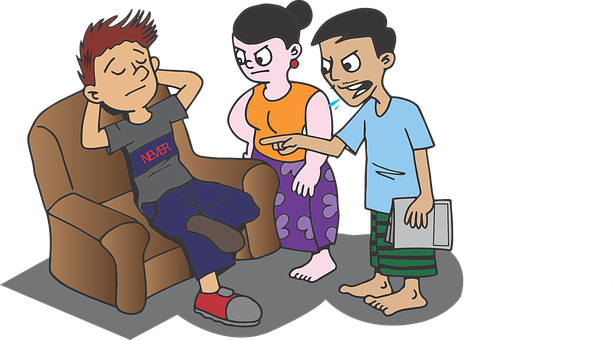In a quantitative study of 9,636 students and college graduates, Forage found that only 19% needed to be more clear about the steps they needed to take to have a successful career.
The rest reported some confusion, with 49% saying they were somewhat clear and 32% stating they were very unclear.
Indeed, education can be confusing, and choosing an educational pathway can be challenging.
When presented with diverging post-16 tracks (for instance, in Gems Wellington Academy Silicon Oasis in Dubai, you have to choose among four learning pathways in Year 12), how do you even begin to decide on a suitable path?
This write-up hopes to help resolve the obscurity surrounding post-16 education in British curriculum international schools and promote clarity in decision-making.
It does this by giving a rundown on the two popular post-16 pathways for incoming Year 12 students: the International Baccalaureate Diploma Programme (IBDP) and Advanced Levels (A-Level).
The International Baccalaureate Diploma Programme (IBDP)
The IBDP is a pre-university program offered in more than 150 countries to students 16 to 19, those in Grades 11 to 12, or Years 12 to 13.
It is a challenging, well-rounded educational program with a strong emphasis on critical thinking and intercultural understanding to prepare students for success in higher education and beyond.
The Curriculum
IBDP curriculum students must fulfill the diploma program core requirements and take courses from six subject groups.
The subject groups are:
- Language and Literature
- Language acquisition
- Individuals and societies
- Sciences
- Maths
- The arts
Students must choose at least one course from every academic area, so IBDP students take up a minimum of six subjects.
An arts category subject, however, may be replaced by an additional course from another area (e.g., language and literature, language acquisition, individuals and societies, and science).
Additionally, three to four courses must be higher level subjects (240 teaching hours), while the rest may be at standard level (150 teaching hours).
Students may take more than one subject in all academic areas except maths. Meanwhile, those who take two language and literature subjects in different languages can earn a bilingual diploma.
The diploma program core has the following mandatory components:
- The theory of knowledge: This epistemological reflection culminates in an exhibition and a 1,600-word essay.
- The extended essay is a 4,000-word report on the student’s self-directed research project.
- Creativity, activity, and service: Students must participate in or initiate projects outside the classroom. These must reflect the categories of creativity, activity, and service, and students must produce one or more projects as an outcome of their CAS undertakings.
Assessment and Completion
Assessment for the IBDP is a combination of internal and external evaluations. Internal coursework assessments are conducted by teachers, while external IB examiners mark external assessments through written exams.
The IBDP uses a holistic scoring system, and students can get a score of one to seven points for every subject attempted, regardless if it’s a higher-level or a standard-level course.
The theory of knowledge and extended essay can earn a student up to three cumulative bonus points. Therefore, a student taking six subjects can earn up to 45 points.
A student needs at least 24 points to receive the IB diploma.
Advanced Level Qualifications (A-Levels)
A-Levels are the national curriculum of England’s (or the British curriculum’s) national high school qualification.
It is usually taken for further education to register for an undergraduate degree at a university or apply for a professional qualification program.
U.K. universities usually require three A levels as a qualification for admission.
While it is a U.K. qualification, A-Levels are offered worldwide, particularly in British curriculum international schools.
The Curriculum
A-Levels take two years to complete. They are linear, so students get their A-Level grades at the end of Year 13, after their final exams for the subjects taken.
There are around 80 A-Level subjects available, generally. However, schools may only offer some of them, and schools outside the United Kingdom typically have fewer options.
Working with Cambridge Assessment International Education, for instance, can give schools a choice among 55 subjects in the following subject areas:
- Creative and professional
- English language and literature
- Humanities and social sciences
- Mathematics
- Sciences
- Languages
Schools decide which subjects they will offer to their students. As such, post-16 students only have some 80 or 55 subjects to choose from; they can only have as many choices as their school gives them.
Students are usually required to take at least three A-Level subjects.
However, some schools may set a different minimum, say, four A-Levels or a mix of three A-Levels and one Advanced Subsidiary (AS) Level qualification plus an Extended Project Qualification (EPQ).
AS-Level: The Advanced Subsidiary Level pertains to level one of A-Level subjects, the first year of a full A-level course.
If you are taking up accounting, your grade in Year 12 will be your AS-Level grade. In Year 13, you can continue with the second part of the subject (A2 level) to earn the full A-Level.
EPQ: This is a stand-alone, self-directed project. It requires students to pose a question, devise a study to answer it, go through the process, log every step and progress, and report everything — findings, methodology, and all — in a 5,000-word paper.
In some schools, students may be allowed to produce an artifact (a book, play, film, etc.) accompanied by a report (minimum of 1,000 words) instead of a 5,000-word research paper.
Students typically choose their A-Level subjects according to their interests and planned academic and career paths.
Those applying for competitive universities typically concentrate their A-Levels on English, maths, and sciences. They also usually aim for five A-Level qualifications.
Assessment
A-Levels are typically assessed through external written exams. A-Level exams are given at the end of the entire two-year A-Level course. Grades range from A* to E, with A* being the highest.
Choosing Between IBDP and A Levels
IBDP has a broader and more holistic curriculum, requiring you to take subjects in at least five subject groups. A Levels have a more specialized curriculum, focusing on a smaller number of subjects chosen by the student.
A-Levels are an excellent choice if you know which path you wish to take after high school. You can start specializing by focusing on the subjects that interest you most or will benefit your chosen future path.
Meanwhile, the IBDP may be better if you want to keep your options open, especially if you have yet to decide what you want to do. It is also better if you want a more well-rounded student profile and portfolio.
One thing’s for sure. Either can provide more than adequate preparation for higher learning, so don’t worry too much.
Consider what you want to do and what you want to study and choose accordingly before proceeding with your online enrolment at Gems Wellington Academy Silicon Oasis (or whichever school you wish to attend).
Awesome one; I hope this article answers your question.
Editor’s Recommendations:
- How to Choose the Right Toy Semi Truck for Your Child
- How to Prepare Your Child for Middle School
- 7 Best Colleges For Early Childhood Education In New England
- How Do I Unenroll My Child From School (FAQs)
- 13+ High Paying Careers Working With Children (FAQs)
- How To Become A Child Psychiatrist (FAQs, Schools)
- Early Childhood Development Degree (How-to, Benefits, Programs)
If you find this article good, please share it with a friend.





